Artisan bakers in the Irish Republic are getting up a head of steam following an inspirational address in the National Bakery School, Dublin, last year by Robert Ditty, a leader of the artisan baking movement in Northern Ireland.
Derek O’Brien, head of the Bakery School, explains that Robert Ditty made a presentation in which he outlined how and why artisan bakers in Northern Ireland have been so successful over the past few years. “It was an inspiring speech,” says O’Brien. In fact, the address spurred immediate activity, with about a dozen bakers deciding then and there to start an artisan movement in the Republic of Ireland, to mirror what has been happening in the north.
Separate southern group
O’Brien explains that the southern group is now meeting regularly, taking it in turns to visit each other’s bakeries. A separate group for the south was preferred to an all-Ireland body, primarily because of the travel involved.
The southern bakers have made so much progress that a marketing campaign is due to be launched soon, complete with a clearly identifiable logo, and a limited range of artisan products, which the public can easily pick out. Recently, many members of the group went to the main German master bakers’ school in Weinheim, to see how the German trade organises itself.
As O’Brien points out: “In Ireland as a whole, we have 250 small bakeries for a population of five million. In Germany, for 82.5 million people, they have 20,000.”
Many of the bakers who have joined the movement to drive artisan breads forwards are already well-known for producing top-quality products – such as Declan Ryan of Arbutus Breads in Cork, or the Bretzel Bakery in Dublin. Just one plant bakery has been involved with the group so far, Stapletons in Roscrea, Co Tipperary.
Declan Molloy of Roscommon-based Mol-loy’s Bakery, which has been going since 1922, is equally enthusiastic. He says that consumers definitely have an appetite for artisan bakery products. He has also been taking part in inter-bakery trading, which the movement sees as an essential “ingredient” of its work. Before last Christmas, Molloy took a number of lines from Robert Ditty’s bakery to sell in his own shop.
Cathal O’Donohue of O’Donohue’s Bakery in Tullamore, Co Offaly, agrees that there’s definitely a market for craft breads in Ireland. He’s a third-generation baker and, since he took over what was McGlinchey’s Bakery in Tullamore 17 years ago, he has grown turnover considerably. “We’ve expanded from IR£50,000 turnover a year to our present level of over E1m, with 30 on the staff,” he says.
But even though O’Donohue’s product range is very modern, one of its popular lines is still the old-fashioned traditional batch loaf.
Need for publicity
He also says that, while the artisan bakery group has made a lot of progress since its launch, it needs a facilitator to drive it forwards. “If we all get in the one boat, we will go faster,” he explains. With the marketing plans about to be put in place, he believes that what the group really needs is good publicity – preferably on television – to sell the whole idea to the public.
Another keen member of the group is Esther Barron, managing director of Barron’s Bakery, Cappoquin, Co Waterford, which is still using the Scotch brick oven installed when the bakery opened in 1887. Barron’s bread is proved slowly and naturally and is shaped by hand.
Yet another group member, Georg Heise, is German and a master chef by profession. He was working in a hotel in England before deciding to come to Ireland in 2000. The
following year, he set up his own bakery business, George’s Patisserie, in Slane, Co Meath. About 75% of his output is patisserie, but he also does Continental-style yeast breads and sourdough products. Heise has proved that, once top quality is there, the public will buy. He says: “The time is definitely right for the artisan movement in Ireland. I hope it will go forwards and that the public will quickly recognise our symbol.”
The fledgling movement could also bring benefits for the bakery school in Dublin. As O’Brien says: “It’s years since we trained any apprentices, but if the new movement really gets off the ground, it could mean us providing extra classes for bakers.” For the bakers themselves, if the movement develops as planned, it could mean lower volumes and higher profits.
Meanwhile, on May 11, the artisan bakers in Northern Ireland launched their new name and logo – somewhat ironically in Dublin. They have their eyes on export markets. Robert Ditty thinks that the term “artisan baker” is getting a bit over-used, exploited by people who aren’t true artisan bakers, so the group relaunched as the Company of Irish Bakers, which has the ring of old-style craftsmanship to it. This will be confined to the artisan bakers of Northern Ireland, but the close, friendly co-operation that has been built up between the artisan bakers in both parts of the country will continue.
Ditty firmly believes that many bakers will go back to craft baking and, now that the southern group has got off the ground, it looks as if the same trend back to traditional values will happen in the Republic.


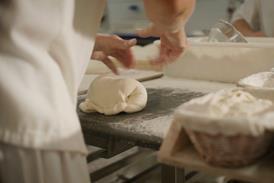
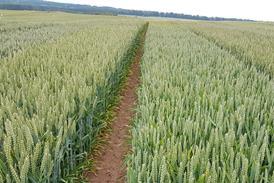
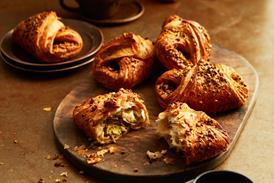
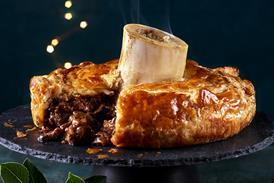
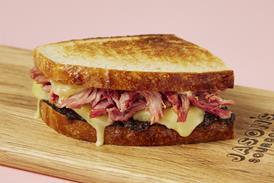


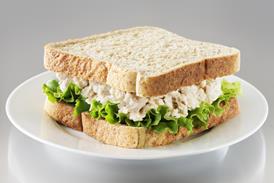



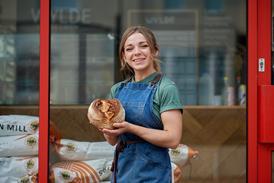
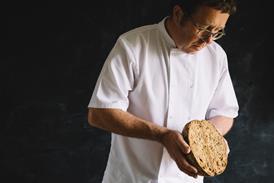
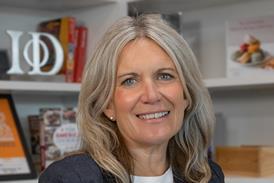


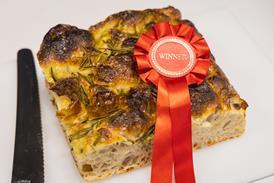







No comments yet